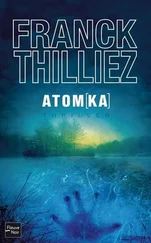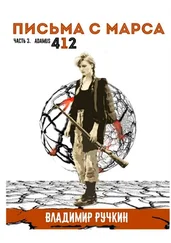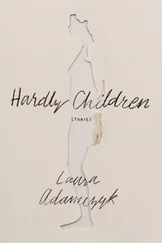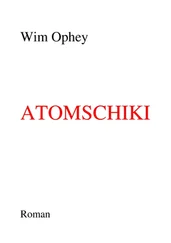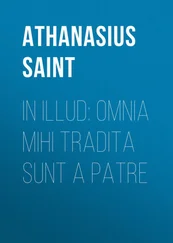Attanasio, AA - Solis
Здесь есть возможность читать онлайн «Attanasio, AA - Solis» весь текст электронной книги совершенно бесплатно (целиком полную версию без сокращений). В некоторых случаях можно слушать аудио, скачать через торрент в формате fb2 и присутствует краткое содержание. Жанр: Старинная литература, на английском языке. Описание произведения, (предисловие) а так же отзывы посетителей доступны на портале библиотеки ЛибКат.
- Название:Solis
- Автор:
- Жанр:
- Год:неизвестен
- ISBN:нет данных
- Рейтинг книги:3 / 5. Голосов: 1
-
Избранное:Добавить в избранное
- Отзывы:
-
Ваша оценка:
- 60
- 1
- 2
- 3
- 4
- 5
Solis: краткое содержание, описание и аннотация
Предлагаем к чтению аннотацию, описание, краткое содержание или предисловие (зависит от того, что написал сам автор книги «Solis»). Если вы не нашли необходимую информацию о книге — напишите в комментариях, мы постараемся отыскать её.
Solis — читать онлайн бесплатно полную книгу (весь текст) целиком
Ниже представлен текст книги, разбитый по страницам. Система сохранения места последней прочитанной страницы, позволяет с удобством читать онлайн бесплатно книгу «Solis», без необходимости каждый раз заново искать на чём Вы остановились. Поставьте закладку, и сможете в любой момент перейти на страницу, на которой закончили чтение.
Интервал:
Закладка:
Buddy shrugs, offers a plaintive smile. "I don't know. This all seems so pointless sometimes. The usual plaint."
"Don't olfacts mitigate your plaint?"
"I'm an old one, Munk. I've been here a long time. Even olfacts have their limits." He lowers himself achingly to the grass and notices the plasteel capsule in a root cove of a nearby tree. "What's that?".
"An archaic brain. I am taking him to Soils, to the vats there. His name is
Mr. Charlie."
Buddy groans as he leans closer to peer at the capsule. "I see him. All the goods are there. Brainstem, too. How old?"
"At least a millennium."
Buddy blows a silent whistle, sits up, and wipes the sweat of his exertion from his broad brow. "I thought I was around a long time."
"How old are you, Buddy?"
"Damn old-but not that old. Where'd you find Mr. Charlie?"
"I have already told you too much," Munk acknowledges, finally supressing his C-P compulsion with the awareness that he is threatening this man. "I am in violation of the Moot. Further association with me may put you in danger. Since you seem recovered from your fall, I will leave you here, Buddy."
"Don't go yet. Finding you has been a great stroke of luck for me." Buddy squints at Munk with a querying and pained expression. "Do andrones believe much in luck?"
"No. My anthropic model includes luck as a vital faith that people have experienced throughout human history, but I believe such superstition demeans people."
"Yes." Buddy sighs and with his heavy hands strokes the grass as if it were fur. "The old ones have said that luck is the child of mystery and fear. But I subscribe to it anyway, fool that I am." His wide face flexes with pain as he leans backward on his elbows. "Tell me your story, Munk. I accept full responsibility for what may come of it. Please."
The plangent expression in the man's blond face quiets Munk's anxiety, but he can find no reason to confide anything more. "I must go now, Buddy. Be well."
"Wait, Munk." in the sunslant through the branches that strikes his
ginger-haired and freckled head, Buddy's eye-sockets look dragonish. "You said you're on your way to Solis and you've violated the Moot. Security may be looking for you. I know the city very well. I can help you avoid them. I can take you to a discreet egress where you can enter the wilds without being observed. An androne of your obvious durability can make the famous trek on foot." His sketchy eyebrows bend more sadly. "Please, tell me your story. I can help you."
Buddy's plangent voice reactivates Munk's C-P program, and for a full second the androne struggles with this decision. In that time, he calls forth the new data he recorded in the Moot when Charles's memory-cull records were displayed in coded spectra. Among those thousand-year-old memories are ideas that inspire Munk to transcend his primary programming yet again and trust in the
creative-what he had always called the unexpected-to find for him new ways through the veils of the world.
Imagination, Munk tells himself within his capacious one-second arena of contemplation. Around that one word he constellates useful information from Charles's memory cull, which tells him that imagination is the psychic process that transforms the pain and limitations of the purely physical. "Man has no Body distinct from his Soul." Those are the words of William Blake, a poet Charles admires.
In the all-inclusive imagination, where circumference does not exist, uncertainty is renovated and becomes sacred, indivisible, impenetrable, unified with all that his primary program usually rejects, with everything ugly, fierce, and cruel. This unity of opposites, of matter and imagination, primary
programming and uncertainty, beauty and ugliness-this, the ancient memories inform him, is where mind reabsorbs reality into a new wholeness. Then the fiery expenditure of energy that is our imagination and that makes us creative enables us to endure uncertainty, to tread emptiness, to be-human.
The crimson light in Munk's lens bar brightens, and as one soul reaching out to another, he tells Buddy his story.
Shau Bandar leads Mei Nili away from the beverage stall and the busy skim route and along an oak-cloistered promenade past water groves and hanging gardens and squat cottages behind flowering hedgerows to a cobbled lane. The lane climbs beside a gurgeling water rill through red-gold beechwoods, where other bungalows peek out. Staring up, Mei sees the stony trail wending ever higher toward bosky obscurities of pine and fir and the onyx immensity of a skytower.
"Here's my place," the reporter announces, stepping past a gnarled mimosa tree and opening a blistered wooden gate rhombic from wear. A flagstone path snakes among walnut trees and a billowy mass of frangipani to a grassy shelf and a
lean, high, gabled house, ramshackle and nearly grown over with rock roses and creeping juniper. "Actually, it may not be mine much longer. I owe more on it than I make, and I'm probably going to have to give it up and live in the cells for a while. Unless, of course," he winks at her, "the copy office buys our trek series."
They pass a birdbath choked with dead leaves and a sundial knocked askew,
climb slanted, creaking steps, and enter a dark, musty interior. Filament lights woven into the sagging ceiling flicker on, illuminating bare cubicles with buckled, water-stained walls. A hammock hangs in one corner, a tatty magnification of the cobwebs elsewhere in the room. In another corner tilts a splintery wardrobe.
Shau Bandar reads the uneasiness in Mei's open face. She is such a blatant provincial, he feels no embarrassment and admits, "I don't merit this house. It belonged to a renowned composer who moved up to a grander niche and left his place to friends. I eventually came to it through a friend of a friend of a friend. It sucks up all my credits and leaves nothing for me to maintain it. But it's haunted with music, and I like that."
He lifts a shroud from a low table beneath an oval rose-glass window and exposes a palm-sized oblong bubble packed with bright chromatic sections of data wafers. "This is the communications link to the copy office. Seen one of these before? It's a total immersion hookup, so it'll seem as if we're actually at the copy office while in fact we're still here. Try not to move around too much or you might walk into a wall. I'll tune us in, and we'll make our pitch."
With a wave of his hand over the bubble, he activates the linkage, and suddenly the shabby room is gone and they are in the ice-pale clarity of Softcopy's editorial suite. Under a dome of champagne-tint plastic overpeering the glittering gorges of the skytowers, people in multihued scapulars mill around cube screens meshing together segments for the next news-clip feedout. The full-view screens display the usual fare for the anthro commune:
interactive neighborhood tours and encounters, sport synergies, gardening tutors, and the big mainstay of the agency, midstim fantasies, which appear as abstract pastiches of sculptural colors. Mei recognizes those from the dream den in the recreational arcade on Deimos and feels a pang of yearning for the neural dream-swatches that each brain tailors to its own desires.
"Bandar, this is not a good time for hashout," says a big-boned woman with silver wing-braided hair and bold streaks of feather paint on her cheeks. "We've got a fast run on a scootball tournament, and I haven't got ten seconds. Hey, isn't this the rogue jumper?"
"Jumper Nili, this is my editor, Bo Rabana-"
"Sweet!" Bo Rabana says, displaying her pudgy palms, then swirling about inside her solar-yellow smock, talking over her shoulder. "I'll open a cube for you, and we'll get your clip out on the next run."
"Bo, she's not here for an interview. We're pitching a trek. Soils."
Читать дальшеИнтервал:
Закладка:
Похожие книги на «Solis»
Представляем Вашему вниманию похожие книги на «Solis» списком для выбора. Мы отобрали схожую по названию и смыслу литературу в надежде предоставить читателям больше вариантов отыскать новые, интересные, ещё непрочитанные произведения.
Обсуждение, отзывы о книге «Solis» и просто собственные мнения читателей. Оставьте ваши комментарии, напишите, что Вы думаете о произведении, его смысле или главных героях. Укажите что конкретно понравилось, а что нет, и почему Вы так считаете.

